The “Fallout” series, developed by Bethesda Game Studios and earlier by Black Isle Studios, is a popular role-playing game series set in a post-apocalyptic world characterized by “retro-futuristic” settings and a darkly humorous tone.
Fallout (1997)
The original Fallout game, released in 1997, really sets the stage for what becomes a cult classic series. It’s a fascinating blend of 1950s American culture mixed with some rather bleak futuristic elements, all set after a nuclear war has devastated the planet. The game starts you off in Vault 13, which is basically a fallout shelter where people have lived for decades, unaware of the outside world.
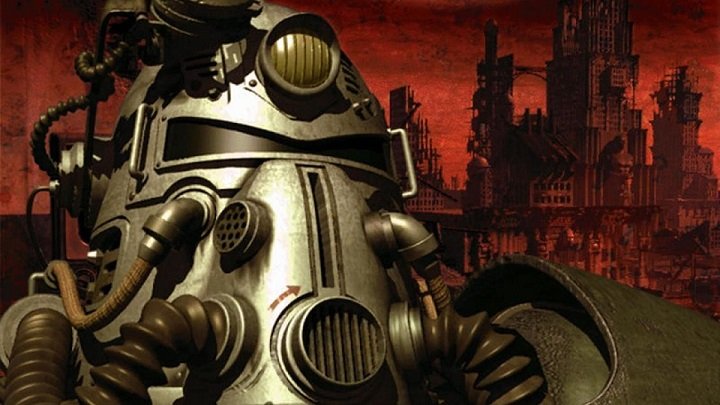
As the player, you’re suddenly thrust into a crucial role. The vault’s water purification system has broken down, and you’re chosen to venture outside to find a replacement part. It’s a pretty intense first step out of the shelter, considering you’re seeing the sun and the ravaged world for the first time.
The game is known for its open-world feel, even though it’s turn-based and uses top-down graphics, which were pretty state-of-the-art at the time. Players love the freedom it offers, allowing you to explore, interact with different factions, and decide whether to be a hero, a villain, or something in between. Plus, it introduced the SPECIAL system for character development, which stands for Strength, Perception, Endurance, Charisma, Intelligence, Agility, and Luck—a system that’s become a staple in the series.
Fallout isn’t just about surviving in a post-apocalyptic world; it’s about how your choices affect that world. It’s gritty, it’s dark, and it has a wicked sense of humor, all of which hook you right from the start.
Fallout 2 (1998)
The sequel, released just a year after the original in 1998, takes everything that fans loved about the first game and just ramps it up. Set a few decades after “Fallout,” you play as the descendant of the first game’s hero, affectionately known as the Chosen One. Your mission? To save your primitive village from famine by finding an ancient technological relic, the Garden of Eden Creation Kit (GECK).
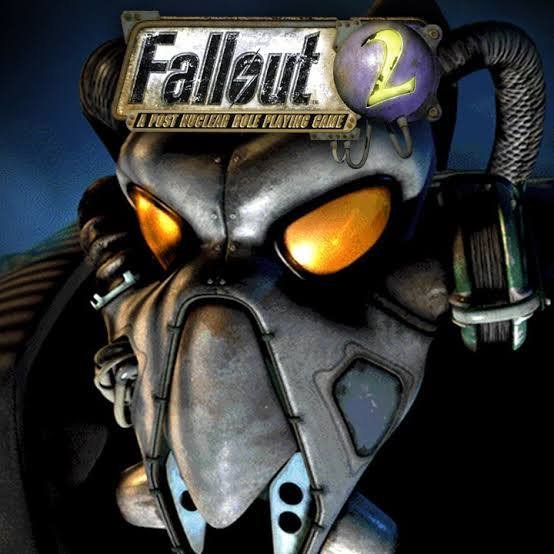
What’s really cool about Fallout 2 is how much larger and more interactive the world feels. The game dives deeper into the series’ signature dark humor and complex moral choices. There are more towns, more NPCs (non-playable characters), and a ton more quests, which can lead to all sorts of unexpected outcomes based on your decisions.
One of the standout features of this game is the freedom it offers. You can become a slaver, a prizefighter, join up with different factions, or just wander the wasteland helping (or hindering) random strangers. And with the introduction of a car—yes, you can actually drive around the wasteland—it’s easier to explore this expanded world.
The game also pushes forward the RPG elements introduced in the first game. The SPECIAL system is back, giving you lots of flexibility in how you develop your character’s skills and attributes over time.
Fans (especially longtime fans) consider this title one of the best ever, because is remembered fondly for building on its predecessor’s foundation with more humor, more content, and a more immersive experience that really draws you into its post-apocalyptic scenario.
Fallout 3 (2008)
Fallout 3 was a game-changer when it hit the shelves in 2008. It took the series into a whole new dimension—quite literally—by transitioning from the top-down view of the previous games to a fully immersive 3D world. The game opens with you being born in Vault 101, a nuclear fallout shelter where no one ever enters and no one ever leaves—or so they say. Your entire childhood unfolds within the vault, which serves as a unique tutorial that lets you shape your character’s background.
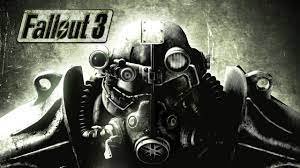
But, of course, life throws a curveball. Your dad, voiced by none other than Liam Neeson, mysteriously disappears from the vault, and you’re forced to head out into the wasteland to find him. This opens up a sprawling, dilapidated Washington D.C., now known as the Capital Wasteland, which is teeming with super mutants, raiders, and all sorts of radioactive creatures.
Fallout 3 really emphasizes exploration and choice. The introduction of the VATS system—a combat mechanic that lets you pause the action and target specific enemy body parts—adds a strategic layer to fighting and makes combat scenes feel like cinematic experiences. Plus, the moral decisions you face are tougher and more impactful, influencing not just your story but how various factions and characters interact with you.

The game is a bleak, yet oddly beautiful portrayal of a post-nuclear world, filled with memorable locations and side quests that could keep you hooked for hours on end. Whether you’re negotiating with slavers, collecting bobbleheads, or uncovering the secrets of the mysterious Brotherhood of Steel, Fallout 3 offers a rich, atmospheric experience that marked a bold new era for the series.
Fallout: New Vegas
Fallout: New Vegas hit the gaming scene in 2010 and quickly became a beloved installment in the series, thanks in large part to its deep narrative and complex character interactions. Developed by Obsidian Entertainment, which included many of the folks who worked on the original Fallout games, “New Vegas” brought a unique flavor to the franchise while maintaining the core elements that fans loved.
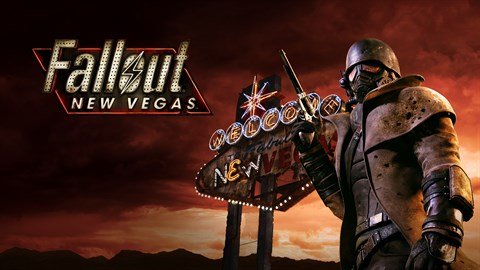
Set in a post-apocalyptic version of the Las Vegas area, you play as the Courier, who’s left for dead in the Mojave Desert after being ambushed for the mysterious package you were transporting. After recovering, you’re thrown into a power struggle among various factions, each vying for control of New Vegas and its resources. What sets this game apart is how these factions interact with each other and how you can influence their fortunes through your actions and choices.
The success of Fallout: New Vegas can be attributed to several key factors:
Rich Storytelling and Writing
The narrative depth of “New Vegas” is exceptional. Each character you meet has a well-developed backstory, and the quests are interwoven with intricate plot lines that offer genuine moral dilemmas. The game’s dialogue is sharp, often brimming with humor and personality, which engages players on a deeper level.
Player Agency and Consequences
More so than in other Fallout games, your choices in “New Vegas” significantly impact the game world. Decisions you make early on can have far-reaching consequences, affecting how the story unfolds and which factions will welcome or oppose you. This level of agency adds immense replay value to the game.
Atmosphere and Setting
The Mojave Desert offers a stark contrast to the urban decay of previous games. Its open spaces and iconic locations, like the Hoover Dam and the Strip itself, are not only visually impressive but also filled with opportunities for exploration and adventure.
Improved Gameplay Mechanics
While building on the combat system introduced in Fallout 3, New Vegas enhanced the experience with additions like the companion wheel for easier management of allies and a more refined reputation system that tracks how factions perceive you.
This game is often praised for its engaging storytelling, detailed world-building, and the significant influence players have on the game’s world and its outcomes.
Fallout 4 (2015)
Official sequel of Fallout 3 was released in 2015, is another major entry in the series that brought significant updates and innovations. The game is set in a post-apocalyptic Boston area, known in the game as the Commonwealth. You begin the story in a unique way—by actually witnessing the nuclear war from a pre-war perspective. You and your family rush to Vault 111 just as the bombs are falling, only to be cryogenically frozen and waking up years later to a drastically changed world.
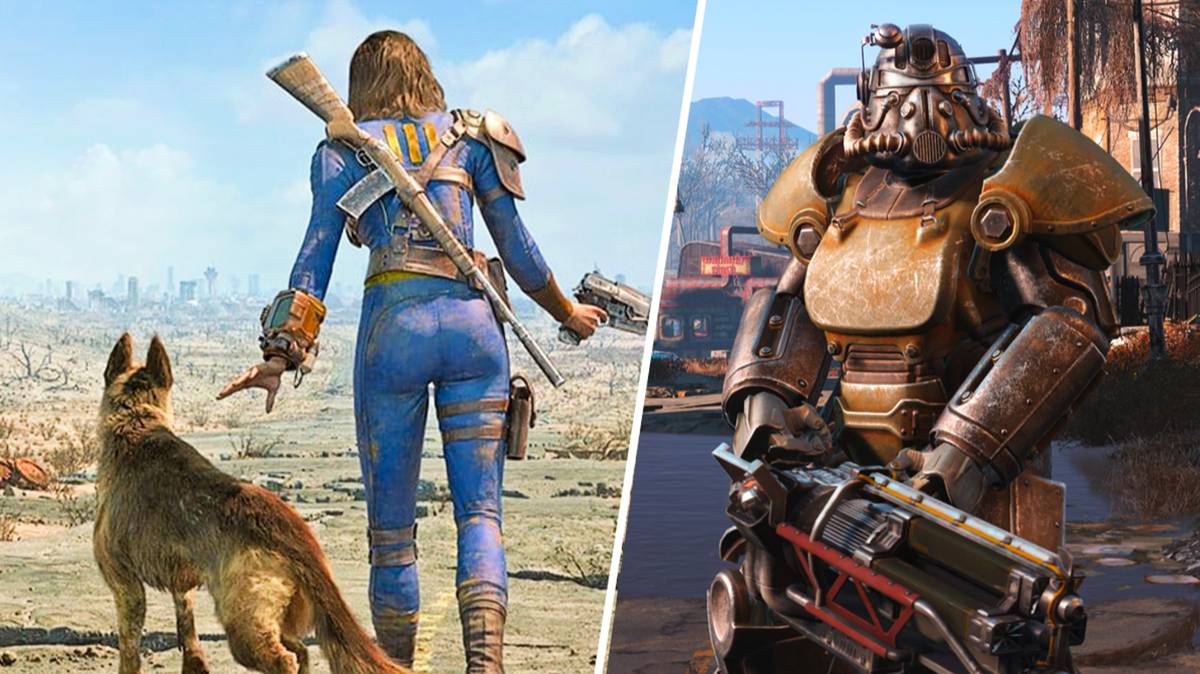
Here’s why “Fallout 4” stands out:
- Graphics and Design: One of the first things you’ll notice is the visual upgrade. Fallout 4 features more detailed environments, better lighting, and more refined character models than its predecessors. The world feels vibrant despite its desolation, with colorful skies and detailed ruins that make exploration more engaging.
- Base Building: this sequel introduced a robust base-building system that allows you to construct and manage settlements. You can build structures, defenses, and resources, which not only provide practical benefits but also involve you deeper in the game’s world as you help communities thrive in the wasteland.
- Crafting System: The game expanded the crafting system, allowing you to modify weapons and armor extensively. Nearly every item in the game can be broken down for parts and used to craft something useful, from scopes and stocks for weapons to power armor upgrades.
- Companion Dynamics: The companions in Fallout 4 are more interactive and integral to the gameplay. Each companion has a distinct personality, backstory, and potential quests related to their character. Your relationship with them can evolve based on your actions and choices, adding an emotional depth to the gameplay.
- Story and Quests: While the main storyline—searching for your missing son—drives the narrative forward, the side quests and the decisions you make in them contribute significantly to the depth of the game. These quests often involve morally gray choices and can affect how different factions in the game interact with you.
- Voice Acting: For the first time in the series, the protagonist is fully voiced, which adds a new layer of immersion to the storytelling. This change was controversial among fans but undeniably made the narrative more personal and emotionally engaging.
Game received critical acclaim for these features, along with some criticism for aspects like the dialogue system and certain simplifications in RPG mechanics. However, its rich open-world experience, depth of customization, and narrative complexity make it a significant and beloved installment in the “Fallout” series.
Fallout 76 (2018)
Last game of this series was released in 2018, marked a significant departure from previous titles in the series by introducing an entirely online multiplayer experience. Set in the hills of post-apocalyptic West Virginia, the game serves as a prequel to the entire “Fallout” series, with players emerging from Vault 76 on “Reclamation Day” to repopulate the world, 25 years after the nuclear war.
Key Features of Fallout 76
Multiplayer Focus: Unlike the single-player narrative-driven format of its predecessors, Fallout 76 is built around online multiplayer gameplay. Players can team up with friends or other players to explore the wasteland, complete quests, build bases together, and even launch nuclear weapons.
Survival Elements: The game incorporates more pronounced survival mechanics than previous titles, including the need to manage hunger and thirst. This adds an extra layer of challenge and encourages players to scavenge and craft regularly.
Large Open World: Fallout 76 features a map several times larger than any previous “Fallout” game. The world is rich with detail, including varied landscapes, dangerous mutated creatures, and hidden lore that expands on the series’ backstory.
Player-vs-Player (PvP) Combat: For the first time in the series, players can engage in combat not just against the environment and NPCs but also against each other, which introduces a competitive element to the gameplay.
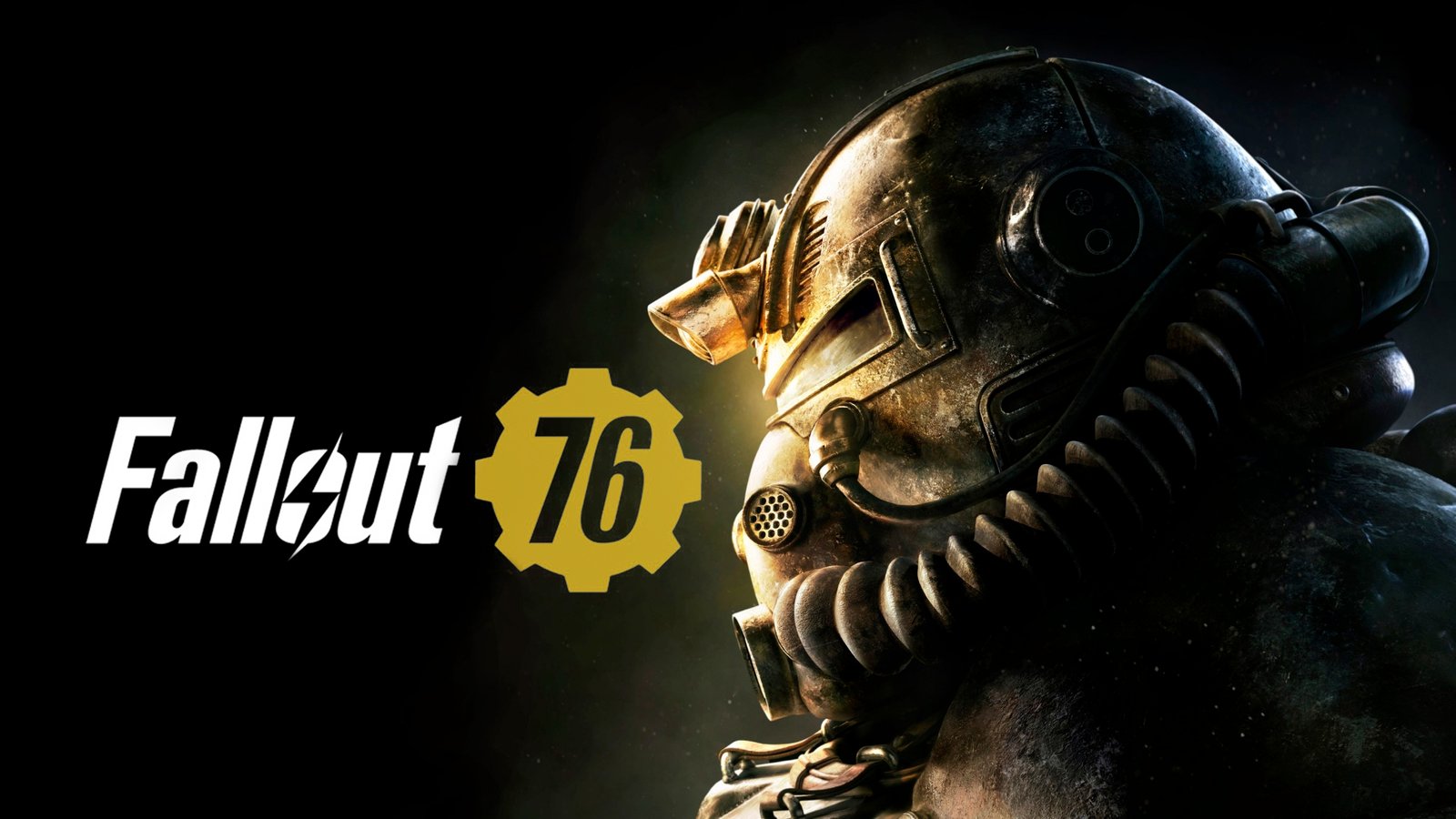
Initial Criticism
Despite its ambitious scope, the game faced significant criticism upon release, primarily due to several key issues:
Technical Problems: Players reported numerous bugs, server instability, and performance issues that severely affected gameplay. The game’s engine, which was adapted from previous “Fallout” titles, seemed ill-equipped to handle the demands of a large-scale multiplayer environment.
Lack of NPCs: Initially, the game did not include human NPCs, which was a significant departure from the series’ focus on story-driven interactions and complex characters. This left many players feeling the world was lifeless and devoid of meaningful narrative engagement.
Content and Gameplay Imbalances: Early versions of the game were criticized for a lack of compelling content and problematic gameplay mechanics, such as unbalanced PvP encounters and underwhelming rewards for completing missions.
Monetization Concerns: The introduction of microtransactions, particularly in the context of the game’s other issues, led to concerns about the game’s focus and Bethesda’s commitment to its fan base.
Despite these issues, Bethesda has continued to update and improve the game based on player feedback. Major updates like “Wastelanders” which introduced NPCs and new quests, and “Steel Dawn” which added a Brotherhood of Steel storyline, have helped to address many of the game’s initial shortcomings and improved the overall player experience. Nonetheless, the rocky launch had a lasting impact on player perceptions and the game’s reputation in the “Fallout” series.
About Future
The buzz around Fallout 5 is growing, though we’re still in for a lengthy wait before its arrival. Bethesda has confirmed that the game will follow The Elder Scrolls 6, which itself is not expected until at least 2026, positioning Fallout 5’s release closer to 2030. Given this timeline, the details about the game remain sparse. However, Bethesda has hinted at a return to more single-player focused gameplay, reacting to the mixed responses to Fallout 76’s multiplayer features.
The anticipation for Fallout 5 includes speculation about new settings, with locations like New Orleans and Chicago being rumored as potential backdrops.
An intriguing twist in the Fallout universe is the recent Fallout TV series on Amazon Prime Video, which has been noted for possibly influencing the development and thematic elements of Fallout 5. Although the series is intended as a standalone narrative within the Fallout universe, its existence may impact the game’s development in unforeseen ways.






